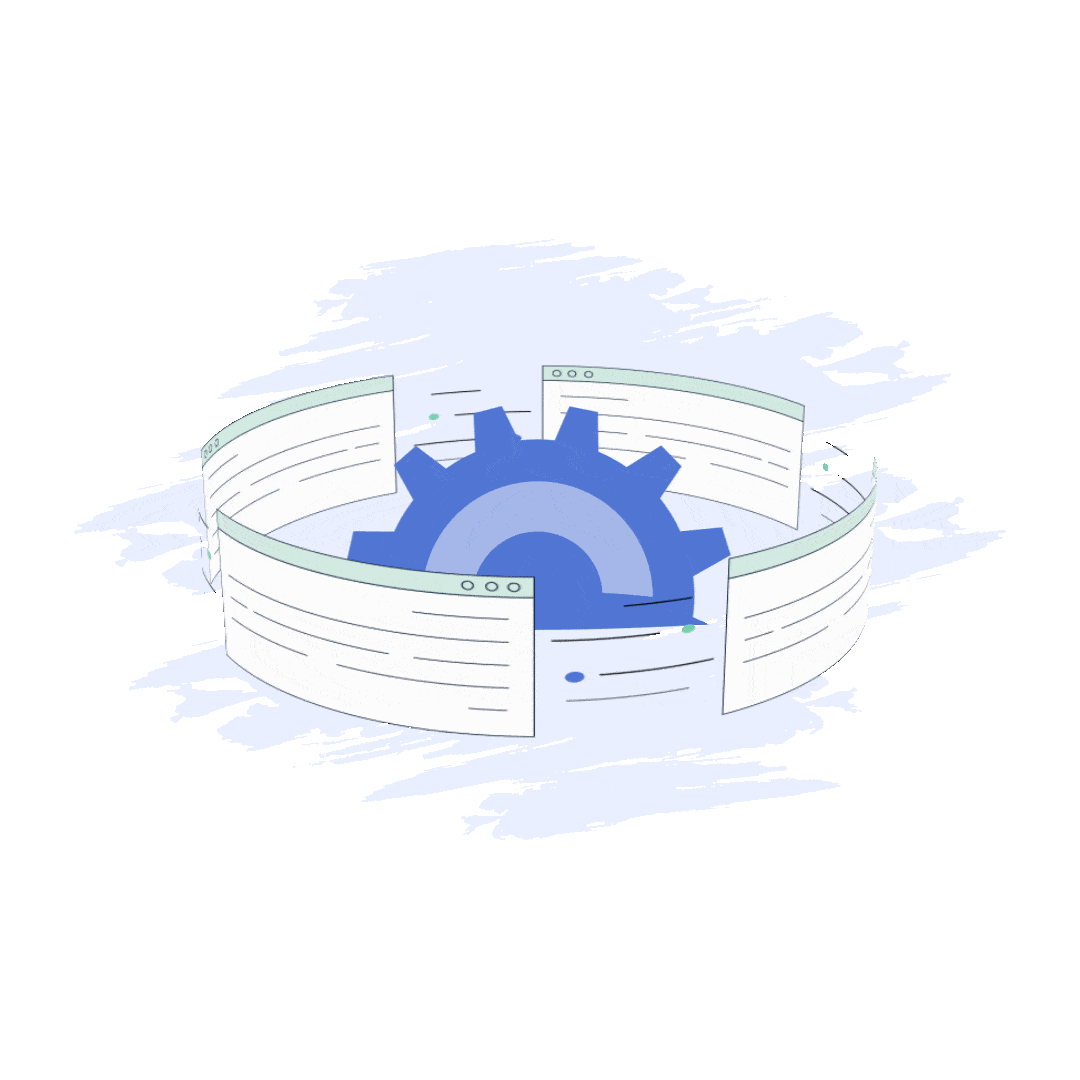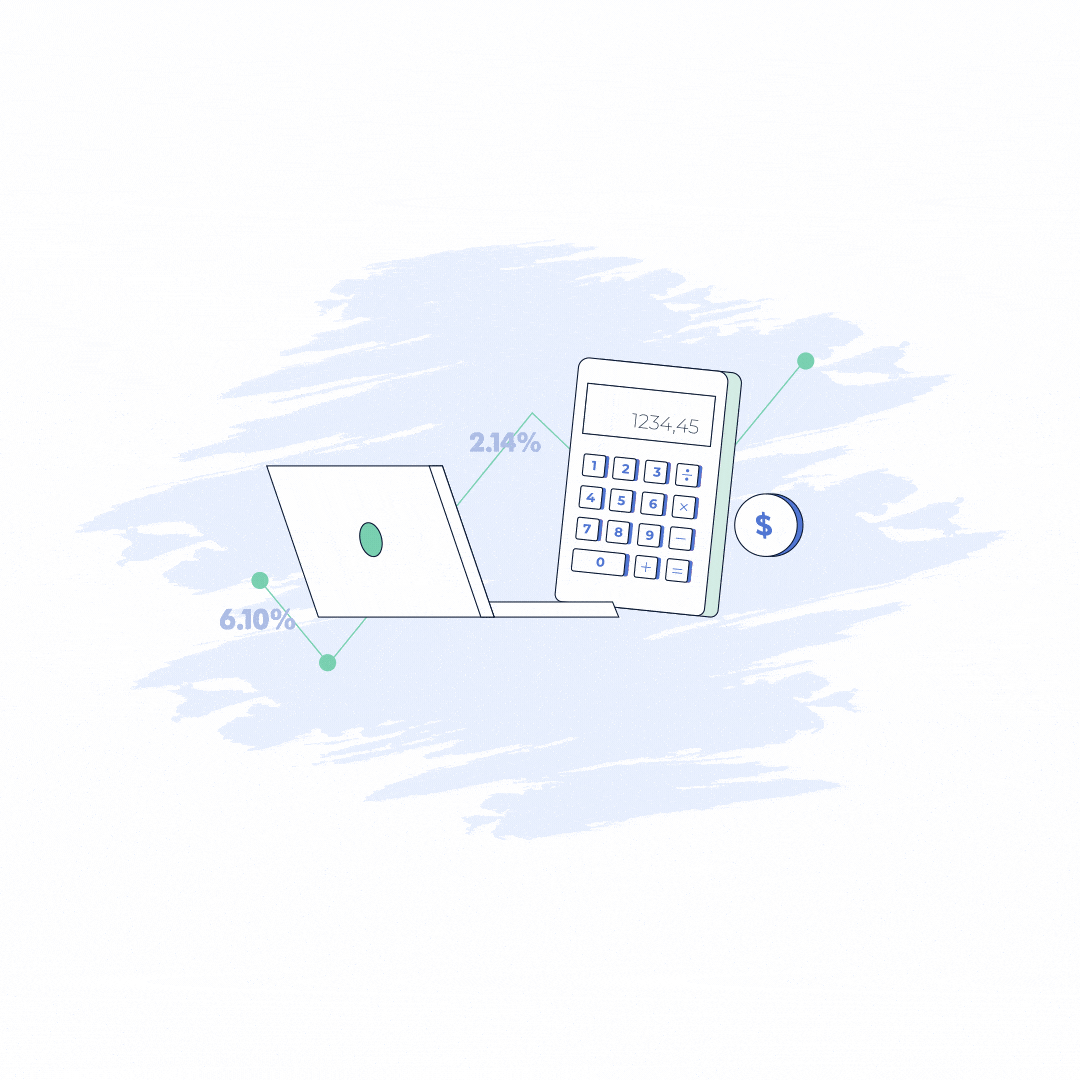Why Zamp?
Combining technology and help from sales tax experts is a game changer.
We do the heavy lifting, so you don’t have to.

Fully Managed Solution
Stressing over sales tax is a thing of the past. All you do is click approve, and we handle the rest. You'll always be up-to-date and sales tax compliant.

Developer Friendly Sales Tax API
Connect your existing e-commerce, marketplace & ERP systems within minutes, and use Zamp’s API for roof-top accurate sales tax calculations.

One Price
One simple price that scales with your business. No overages, no hidden fees, no surprises.
Tax Software API
- Selecting the Ideal Tax Software API for Your Online Business
- Integrating Tax Software APIs Effectively
- The Importance of Security and Data Protection During the Integration Process
- Strategies for Optimizing the Use of Tax Software APIs
- Navigating Future Trends and Innovations in Tax Software Technology
- The Implications of Regulatory Changes on Tax Software APIs
- Maximizing Business Growth with Smart Tax Solutions
- Tax Software API FAQ
Let's break down the basics of sales tax software APIs.
Sales tax software APIs are like special tools that work with your online business platforms. They handle the hard work of figuring out sales tax for you. Basically, they connect your sales info with the complicated tax rules. These APIs grab the right tax rates and rules from databases that update in real time. Then, they use this info to calculate taxes for each sale, based on where your customers are. This helps make sure every sale follows the local tax rules.
So, how do these APIs make sales tax calculations easier?
By automating the sales tax process! No more messing around with spreadsheets or updating things manually. Whenever someone buys something, the API figures out the taxes automatically. It looks at stuff like what was bought, where the buyer is, and the current tax laws. This not only makes checking out faster but also cuts down on mistakes. And for businesses, fewer mistakes mean less chance of getting in trouble withUncle Sam.
But that's not all - using tax software APIs has other big benefits too.
The best part? Saving time and money. Think about how much time it takes to keep up with all the tax changes in different places. It can be a real headache. But with a tax software API, all that is taken care of automatically. This frees up your team to focus on important stuff like growing your business and keeping customers happy. Plus, getting the tax calculations right the first time means you can avoid costly fines or audits down the line. And for small to mid-sized businesses, saving money like this can be a game-changer, helping them grow and stay strong.
Selecting the Ideal Tax Software API for Your Online Business
When picking a sales tax software API for your online business, keep an eye out for these key features:
1. Real-Time Tax Rates: Look for an API that can grab the latest tax rates automatically. This is important because tax rates change, and you need to stay up-to-date.
2. Handling Different Laws: If you're selling in different states, the API should handle all the different tax rules without you having to do anything extra.
3. Accuracy and Trustworthiness: Make sure the API gives accurate tax calculations every time. You don't want mistakes that could get you in trouble or make customers unhappy.
4. Detailed Reports: A good API should give you lots of info about your taxes. You should be able to see past transactions, get ready for audits, and understand your tax situation easily.
Evaluate Criteria for Choosing the Right API Provider
When picking a provider for your tax software API, you need to think about more than just what the API can do. Here are some things to consider:
Reliability: You want a provider that you can rely on. Make sure they have a good track record of keeping their service up and running smoothly. You don't want your sales to be affected by glitches or downtime.
Scalability: Your business will hopefully grow over time, so you need an API that can grow with it. Check that the sales tax API can handle more transactions as your business gets bigger without slowing down.
Easy Integration: The API should be easy to connect with your current e-commerce and accounting systems like Shopify, BigCommerce, or QuickBooks. If it's too complicated, it could end up costing you time and money.
Customer Support: If you run into problems, you want to know that help is available. Look for a provider that offers good customer support, with clear guides, responsive staff, and tools to help you fix any issues that come up.
Book a call today
We'll answer all of your sales tax questions & address any of your concerns to ensure that you never have to worry about sales tax again-
1Book a free 30 minute call
-
2Meet with one of our experts
-
3Get sales tax off your plate
Common Implementation Challenges
When you're putting in a new tax software API, you might run into some challenges. Here are a few common ones and how to handle them:
Moving Data: Getting your old tax info into the new system can be tough. Talk to the API provider about getting help with this—they might have special tools or services to make it easier.
Making It Work with Your Systems: Sometimes, new APIs don't work well with your other software. Before you start, check if everything will work together smoothly. You might need to update some of your older systems.
Training Your Team: Your team will need to learn how to use the new API. Look for a provider that offers good training materials and sessions. It's also a good idea to get feedback from your team as you start using the new system to see if there are any problems or things they need help with.
By thinking about these things and choosing the right API, you can make sure your tax software fits your needs now and in the future.
Integrating Tax Software APIs Effectively
Integrating a tax software API into your e-commerce platform smoothly is key to getting the most out of it. Here's how to do it right:
1. Figure Out What You Need: Before you start, think about what you want the API to do. Decide if you need it to make things more accurate, save time, or help you follow the rules. Make sure the API can do what you need it to do.
2. Plan Ahead: Integration should be planned carefully. Work out a plan with timelines, who's responsible for what, and when things need to happen. Make sure everyone who needs to be involved knows what's going on.
3. Test Everything: Before you start using the API for real, test it out to make sure it works like it should. Look for any problems that could cause issues later on and take your time with this step.
4. Take It Slow: If you can, start using the API a little bit at a time. Try it out on a small part of your business first before using it everywhere. This way, if there are any problems, they won't affect everything all at once, and you can fix them before they become big issues.
The Importance of Security and Data Protection During the Integration Process
Security is super important when integrating any API, especially one dealing with important tax info:
Keep It Safe: Make sure all data transfers during integration are done securely. That means using things like HTTPS and making sure all data is encrypted.
Control Access: Only let authorized people access the API and its data. This stops anyone who shouldn't be messing with your tax info from getting in.
Check Things Out: Regularly check the API to make sure it's following all the rules and doesn't have any weak spots that could cause problems.
Know the Rules: Make sure the API follows all the big data protection rules, like GDPR or PCI DSS. Also, understand how they handle your data and what their privacy policies are all about.
Strategies for Optimizing the Use of Tax Software APIs
Optimizing tax software and ecommerce APIs can make a big difference in how smoothly things run and how happy your customers are:
Make Reporting Easy: Use the API to automate most of the tax reporting stuff. This means it can handle generating and filing reports without you having to do it all manually. It saves time and cuts down on mistakes.
Make It Look Good: Make sure the API fits nicely into your online store's look and feel. For example, when customers check out, show them the tax charges clearly so they know what's going on. This makes things easier for them and can stop them from leaving without buying anything.
Stay Updated: Keep the API up-to-date so you can use all the latest features. Stay in touch with the API provider to hear about any cool new stuff they add that could help your business.
Listen Up: Pay attention to what your customers say. If they have any problems or suggestions about the tax stuff on your site, listen to them and fix things if needed.
By following these tips, you can make sure using tax software APIs in your online store not only saves time but also makes your customers happy.
Navigating Future Trends and Innovations in Tax Software Technology
Using tax software APIs can really improve how smoothly your business runs and keep your customers satisfied:
Simplify Reporting: Let the API handle most of the tax reporting tasks. It can create and file reports automatically, which saves you time and reduces errors.
Design Matters: Make sure the API blends in well with your online store's appearance. For instance, during checkout, display tax charges clearly so customers understand. This helps them make purchases without confusion.
Keep It Updated: Ensure your API is always up-to-date so you can access the latest features. Stay connected with the API provider to learn about any new features that could benefit your business.
Listen to Feedback: Pay attention to what your customers say. If they have any issues or ideas about the tax part of your website, take their feedback seriously and make improvements if needed.
The Implications of Regulatory Changes on Tax Software APIs
Tax regulations are always changing, but businesses can keep up by following these steps:
Stay Updated: Keep an eye on tax regulation changes by subscribing to updates from tax authorities and using sales tax automation software that stays current with the latest laws.
Flexible APIs: Choose tax software APIs that can adapt easily to new tax laws. This flexibility reduces downtime and helps you stay compliant.
Training: Train your finance and IT teams regularly so they understand new tax laws and how to use your tax software effectively.
Seek Advice: Get advice from sales tax experts and legal advisors to understand how regulatory changes might affect your business.
By staying informed and prepared, businesses can stay compliant with tax laws and take advantage of new technologies as they emerge.
Maximizing Business Growth with Smart Tax Solutions
After looking into tax software APIs, it's obvious they're super helpful for e-commerce businesses. Let's review why using these APIs isn't just a good idea—it's a big deal for making your business grow faster and keeping it successful.
Here's how tax software APIs can really change how e-commerce businesses work:
Making Things More Accurate: These APIs constantly update and do precise math, so there's less chance of making mistakes that could get you fined.
Keeping You on Track: When tax laws change, the API changes with them. That means you don't have to worry about keeping up with all the new rules by yourself.
Saving You Time: Instead of spending hours doing math and looking up tax rules, the API does it for you. That gives you more time to focus on getting more customers and making better products.
To stay ahead in the fast-changing online market, businesses need to use tech that helps them grow and adapt. Tax software APIs, like the ones offered by Zamp, do just that. They make handling taxes easier, so you can focus on growing your business without worrying about complicated tax rules. With Zamp's solution, you can stay competitive and keep growing without getting stuck in tax paperwork.
Adopting Zamp's tax software API empowers businesses to stay competitive in a rapidly changing landscape. By leveraging these solutions, businesses can focus on what they do best—innovating, expanding, and delivering value to customers—while leaving the complexities of tax compliance to Zamp's reliable and efficient platform. Reach out to our team today to schedule a free demo.
Book a call today
We'll answer all of your sales tax questions & address any of your concerns to ensure that you never have to worry about sales tax again-
1Book a free 30 minute call
-
2Meet with one of our experts
-
3Get sales tax off your plate
Tax Software API FAQ
A tax software API is a tool that integrates with your e-commerce platform to automate the process of calculating and applying sales taxes during transactions. This is crucial for ensuring accuracy, compliance with various tax laws, and efficient handling of sales tax without requiring manual effort, thereby allowing you to focus on other aspects of your business.
Tax software APIs are designed to fetch and apply the latest tax rates automatically based on the customer's location and the type of product being sold. They use updated databases to ensure that every transaction is compliant with the current tax laws, significantly reducing the risk of errors that can occur with manual calculations.
Yes, tax software APIs are particularly useful for businesses that operate across multiple tax jurisdictions. These APIs can handle various tax rates and rules, automatically adjusting calculations to ensure compliance.
When selecting a tax software API provider, consider the reliability of their service, their ability to scale with your business, ease of integration with your current systems, and the quality of customer support. It's also important to assess their compliance with data security standards to protect sensitive customer information.
Common challenges include data migration, compatibility with existing systems, and training staff to use the new system. These can be addressed by choosing an API that offers strong technical support, conducting thorough testing before complete integration, and ensuring that the API provider offers training resources.
Emerging technologies such as AI and blockchain are poised to enhance the functionalities of tax software APIs by improving the accuracy of tax calculations and the security of transaction records. AI can help in predicting compliance risks and optimizing tax settings, while blockchain could offer a secure and transparent way to record and verify transactions, making audits simpler and more straightforward.
- Selecting the Ideal Tax Software API for Your Online Business
- Integrating Tax Software APIs Effectively
- The Importance of Security and Data Protection During the Integration Process
- Strategies for Optimizing the Use of Tax Software APIs
- Navigating Future Trends and Innovations in Tax Software Technology
- The Implications of Regulatory Changes on Tax Software APIs
- Maximizing Business Growth with Smart Tax Solutions
- Tax Software API FAQ
Book a call today
We'll answer all of your sales tax questions & address any of your concerns to ensure that you never have to worry about sales tax again-
1Book a free 30 minute call
-
2Meet with one of our experts
-
3Get sales tax off your plate


